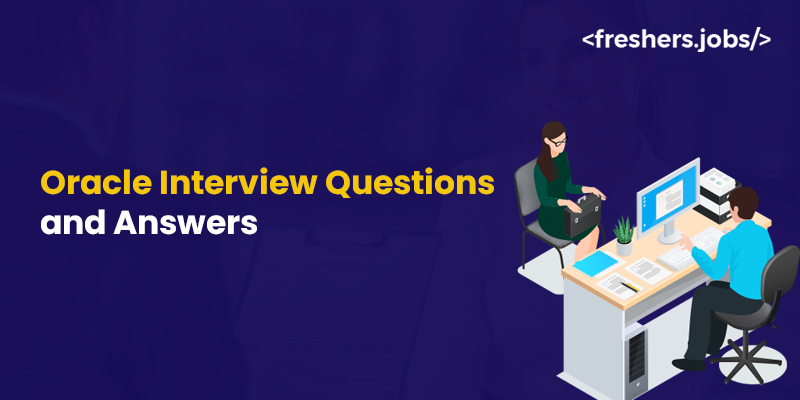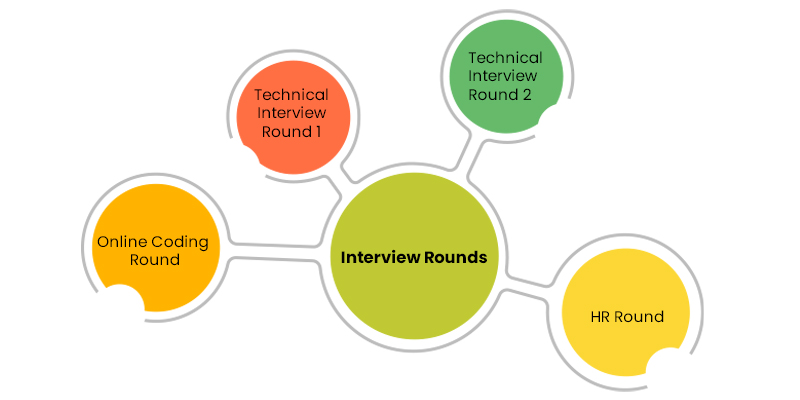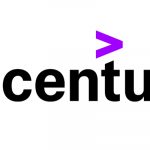Oracle is a Multinational computer technology company in America, and its Headquarters is located in Austin. In 2020, Oracle secured the third position as one of the largest software companies based on revenue and market capitalization. This company specializes in marketing database software and technology, cloud-engineered systems, and a suite of enterprise software products. This includes Software for Enterprise Resource Planning, Human Capital Management, Customer Relationship Management, Enterprise Performance Management, and Supply Chain Management.
Oracle’s commitment to innovation and its role in shaping the technology landscape makes it a highly sought-after employer for individuals starting their careers in the IT industry. In this blog, we will delve into the oracle interview questions and process for freshers jobs seeking candidates.
Interview Process
Oracle places significant emphasis on its hiring process, considering it as a very important part of its organizational culture. The company is well-known for promoting a diverse and inclusive workplace where every individual’s contribution is valued. To achieve this goal, Oracle’s hiring team prioritizes the recruitment of highly talented professionals from a wide range of backgrounds. They believe in building a workplace that includes diverse perspectives and experiences. Oracle recognizes that a fair and equitable hiring process is the initial step toward achieving this inclusivity. They also focus on creating an environment where employees from all backgrounds can thrive and contribute to the company’s success. This dedication to diversity and inclusion not only enriches the workplace but also positions Oracle as a forward-thinking and socially responsible organization.
If you are in search of job openings in Gurgaon, you can look for job openings available in that city. Visit fresher job openings in Gurgaon to find job positions that are relevant to your skills and abilities.
Interview Rounds
- Online Coding Round: The initial round is an online test covering a spectrum of topics, and the online oracle coding questions will include all those topics like logical reasoning, quantitative analysis, and core subjects like Data Structures and Algorithms, Networking, Object-Oriented Programming, and Database Management Systems. This round consists of Multiple Choice Questions.
- Technical Interview Round 1: Following the online test, selected candidates proceed to the Technical Interview Round, which can be conducted via video call or phone call. In this round, the focus is on evaluating the candidate’s coding skills in case the specific job opportunity requires strong coding knowledge. Typically, the interviewer presents two questions related to Data Structures and Algorithms.
- Technical Interview Round 2: This stage involves a personal interview where candidates encounter challenging questions centered around data structures. Additionally, inquiries related to the candidate’s resume may arise during this round. Some interviewers also incorporate puzzles to assess the candidate’s problem-solving capabilities.
- HR Round: The final step is an informal HR interview where the interviewer may ask general questions about the candidate’s work experience and ethical perspectives. This round serves to determine whether the applicant aligns with the company’s culture and values.
Oracle offers a wide range of job vacancies for freshers. Interested Candidates can click on Oracle Jobs For Freshers to apply for various job roles relevant to their skills and abilities.
Oracle Technical Interview Questions
Let’s Look into the technical oracle interview questions and answers.
- What are the components of the physical database structure of an Oracle database?
The structural elements of an Oracle database’s physical composition comprise:
- Two or more redo log files.
- At least one data file.
- At least one control file.
- In which programming language was the Oracle database developed?
The Oracle database, a widely-used relational database management system, was developed using primarily the C programming language.
- Could you please explain the logical storage structure of the Oracle database and provide a list of its primary components in the logical database structure?
The logical storage structure in Oracle serves as a means of organizing data within the database alongside its physical files. It consists of several key components, such as data blocks, extents, segments, and tablespaces. At a physical level, data resides in data files stored on the disk within the operating system blocks. The primary elements of the logical database structure in Oracle are as follows:
- Tablespaces: Tablespaces are the fundamental units of storage allocation in an Oracle database. Each tablespace is composed of one or more physical files within the operating system. The creation of the initial database includes the SYSTEM tablespace, while additional tablespaces can be created by the Database Administrator to manage data storage efficiently.
- Database Schema Objects: In Oracle recruitment, a schema is akin to an account or username associated with the database. Each database object is owned by a specific schema. Every Oracle database begins with two essential schemas: SYS, responsible for housing the data dictionary, and SYSTEM, which often contains data dictionary extensions and critical tables for various tools. Additional schemas can be created by the DBA, and each schema can be allocated storage space in one or more tablespaces through quota assignments.
Some oracle interview questions may need answers in a description form. The following question and answer is in the form of a description of a specific topic.
- Provide a description of what a tablespace represents within the Oracle database environment.
In the context of the Oracle database, a tablespace can be defined as the logical storage entity used to organize and manage data. It consists of a collection of interconnected logical structures. Tablespaces are organized into tablespace groups, which help link various logical elements within the database. Essentially, tablespaces serve as the logical container for data storage in Oracle, while the actual physical storage occurs in data files associated with each respective tablespace.
- List the default tablespaces provided by Oracle.
Oracle’s default tablespaces include:
- SYSTEM and SYSAUX tablespaces: These tablespaces house system-generated objects like data dictionary tables. It’s important not to store any user-created objects in these tablespaces.
- USERS tablespace: Designed for ad-hoc users’ data storage.
- UNDOTBS1 tablespace: This tablespace is dedicated to storing undo data.
- TEMP tablespace: Reserved for temporary storage, where intermediate results from sorting, hashing, and large object processing operations are stored.
Some oracle interview questions may also be raised regarding the difference between the 2 topics. Given below is an example of a differentiation question answer.
- What are the basic differences between an Online and an offline Tablespace?
When a tablespace is offline, its data becomes inaccessible. Conversely, when a tablespace is online, the data within it is both readable and writable.
- What is the definition of a SYSTEM tablespace, and when is it typically established?
In the Oracle database system, whenever a new database is created, an automatic creation of the SYSTEM tablespace occurs. The SYSTEM tablespace houses the data dictionary tables, which are essential for the entire database’s operation. Maintaining the online status of the SYSTEM tablespace is essential, as it ensures continuous availability of the data dictionary, which Oracle relies upon for its functioning.
- What is an Oracle table?
Within an Oracle database, an Oracle table serves as the fundamental data storage unit, containing all accessible user information organized in rows and columns.
- What is a snapshot in the context of an Oracle database?
In Oracle, snapshots also referred to as materialized views, play a vital role in data replication across non-master sites within a replicated environment. Additionally, in data warehouse scenarios, snapshots serve as a means to cache resource-intensive queries. In essence, a snapshot is a precise snapshot or copy of the master table at a specific moment in time.
- Can you provide an explanation of the RAW data?
In Oracle Database, the RAW datatype is employed for storing data in binary format, with a maximum storage capacity of 32,767 bytes per column.
- Could you explain the memory layers present within the Oracle shared pool?
The Oracle shared pool comprises two distinct memory layers:
- Library Cache: This layer stores details related to parsed SQL statements, cursor data, and any existing execution plans.
- Data Dictionary Cache: Within this layer, you’ll find information pertaining to user accounts, their privileges, and segment-related data in the database.
Answers for some oracle interview questions will be in the form of a definition or single line. Given below are the examples of definition or single-line question answers.
- What is Logical backup in Oracle.
The process of logical backup involves extracting a collection of database records and storing them in a file. To create a backup, an Export utility is employed, and in case of a need for recovery, an Import utility can be utilized to restore the data from the backup.
- What are recursive hints in Oracle?
A recursive hint pertains to the frequency with which a dictionary table is repeatedly accessed by multiple processes. Recursive hints often arise due to the limited capacity of the data dictionary cache.
- What is the primary drawback of the CHECK constraint?
The primary drawback of the CHECK constraint is that it requires a boolean expression based on the values within the row being inserted or updated, and second, it cannot incorporate any subqueries.
- What is the usage of the GRANT option in the IMP command?
You can employ the GRANT option within the IMP command to import object grants.
- What is the usage of the ROWS option in the IMP command?
The ROWS option in the IMP command is used to indicate whether the table rows should be imported or not.
Coding Questions
Let’s delve into the oracle coding questions and answers part. The answers to these questions will be in coding or in a syntax form.
- Could you please provide an example of how to convert a date to a character format in Oracle?
SELECT TO_DATE(’12-07-2021′, ‘DD-MM-YYYY’) AS formatted_date FROM dual;
- Can you please illustrate how to change a string into a date in Oracle?
SELECT CAST(TO_DATE(’12-07-2021′, ‘DD-MM-YYYY’) AS DATE) AS formatted_date FROM dual;
- What function is utilized to determine the present date and time of the underlying operating system where the Oracle database is hosted?
You can use the SYSDATE() function to retrieve the current date and time from the operating system where the Oracle database is hosted. The following example demonstrates this:
SELECT TO_CHAR(CURRENT_TIMESTAMP, ‘YYYY-MM-DD HH24:MI:SS’) AS “Current Date:” FROM DUAL;
- What are the actual parameters? Explain with an example.
Actual parameters refer to the variables or expressions mentioned within the parameter list of a subprogram. For instance, consider a procedure call with two actual parameters named empNumber and amount, as illustrated below:
updateSalary(empNumber,amount);
- What are formal parameters?
Formal parameters are variables declared within the specification of a subprogram and subsequently utilized within the body of that subprogram.
- Compose a query to determine the mean salary of employees stored in the Oracle table named “Emp.”
Here is a query provided to calculate the average salary of employees from the Oracle table called “Emp”:
SELECT AVG(SALARY) FROM EMP;
In conclusion, preparing for an Oracle interview can be a challenging task at the beginning, but with the insights and knowledge gained from these questions and sample answers, you will be better equipped to tackle your interview with confidence. In this blog, we have explored a range of oracle interview questions and their corresponding answers.





